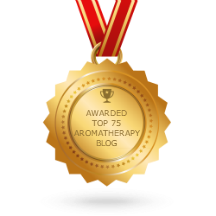A client mentioned seeing Rose Oil mentioned in the Journal, and sure enough, the July Edition has an article by CJ Puotinen called "Coming Up Roses."
Wonderful herbal recipes for those who have a source for fresh or dried organic rose petals... Rose Tea, Rose Vinegar, powdered Rose Hips and Rose Flower Essence all may be used for healing irritated skin, upset tummies, and to help calm and adapt to separation anxiety and other stressors.
All of the above suggestions are for the gardeners and herbalists among us... but ah, the real focus of the article - and what excited us, is the sections about using Rose Otto, and Rose Hydrosol, and Rose Hip Seed oil to help our canine kids.
 In discussing the many uses of Rose Oil, CJ quoted Kristen Leigh Bell's Holistic Aromatherapy for Animals, and me! I was tickled to see my love for Rose Oil and its myriad uses shared in the magazine. I learned some new uses for my beloved Rose. I had read that Rose Geranium oil could repel ticks. According to CJ, "ticks turned somersaults to escape from it." So will Rose, and perhaps Palma Rosa. Of course the other two oils are much less costly than rare Rose Otto, but you could use as little as 5 drops of rose oil in 8 ounces of shampoo.
In discussing the many uses of Rose Oil, CJ quoted Kristen Leigh Bell's Holistic Aromatherapy for Animals, and me! I was tickled to see my love for Rose Oil and its myriad uses shared in the magazine. I learned some new uses for my beloved Rose. I had read that Rose Geranium oil could repel ticks. According to CJ, "ticks turned somersaults to escape from it." So will Rose, and perhaps Palma Rosa. Of course the other two oils are much less costly than rare Rose Otto, but you could use as little as 5 drops of rose oil in 8 ounces of shampoo.CJ also discussed using a nebulizing diffuser to create a "calming, uplifting environment" expecially for dogs recovering from emotional trauma, illness, or injury. Because of the expense of Rose Oil I would never recommend diffusing it, but adding a touch of rose to another blend of oils might give you the same effects. Or, you could follow CJ's formula for a Rose Room Spray: Fill a spray bottle with 4 to 6 ounces water (1/2 to 3/4 measuring cup_, add 4 drops of rose oil. Shake well, spray into the air.

She goes on to recommend Rose Hydrosol as a tick repellant, and cold pressed Rose Hip Seed oil to heal scars, wounds, abrasions and nails that split or break. She suggests using the Rose Hip Seed Oil to condition your dog's skin and coat. (She also recommends further diluting the Rose Hip Seed oil in Argan Oil as a hair conditioner.
I'm just thinking...Rose Hip Seed Oil, in Argan Oil, with a single drop of Rose Otto added? Oh yes, LilBit, if you are a VERY good girl I may share a bit of this with you!!!

